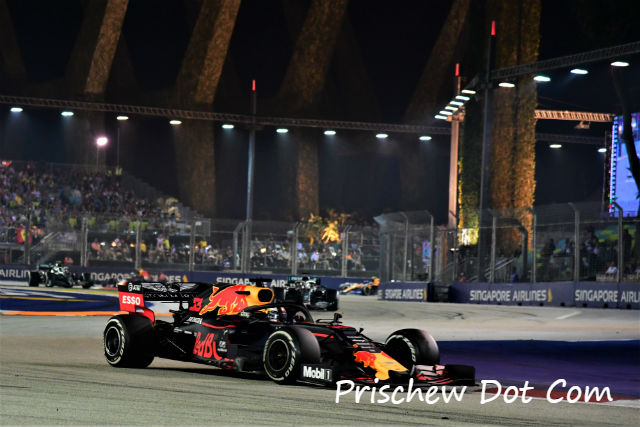In their bid to become a leader in biofuel technology, Formula 1 will be targeting a net-zero carbon footprint by 2030. This is according to Pat Symonds, Chief Technical Officer at Formula 1.
Says Symonds, “At the moment, the bio content specified in regulations is reasonably free but what has happened is that the fuel companies in Formula 1 have largely ended up using a very similar product and it is expensive. So in 2021, we will move to 10% bio elements and specify that it is an advanced sustainable ethanol.”

The fuel used will also be a second generation biofuel which means that it will not have a significant impact on the food chain.
Says Symonds, “They use either food waste, the husks of corn for example, or biomass, for example, forestry waste or indeed household waste.”
The fuel that Symonds is talking about are synthesised, meaning that they do not have some of the bad stuff found in fossil fuel such as Sulphur.
Says Symonds, “The sulphur content of fossil fuels have to be much lower now but when you synthesise a fuel, you do not need sulphur so you just don’t put it in. It can be a very clean fuel. The products of combustion are the same, though, so you are going to produce oxides of nitrogen but a modern Formula 1 engine is so efficient and that efficiency is the result of Formula 1’s ability to drive innovation in pursuit of performance gain.”
Currently the production of these drop-in environmentally-friendly fuels are at too low a technology readiness level but Symonds hopes to use this to eventually show the world that there are alternatives to electric power and storing electricity in heavy and dirty batteries.
He said, “Formula 1 did not invent the hybrid, but Formula 1 showed what a hybrid can be and it moved people’s perceptions of what a hybrid is capable of. I think that we can do the same with new fuel technology.”
Symonds added “However, the path is not completely clear at the moment. But in partnership with the FIA and the help of the engine manufacturers and the fuel companies, we are looking at this being the way forward.”

Leave a Comment